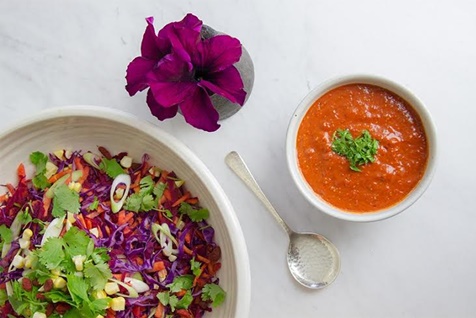What Makes a Restaurant Popular?
Multiple factors affect the popularity of a restaurant. These include the demand of the cuisine being offered in that area, live entertainment, service quality to the mood created by the overall ambience of the space. A study by Susskind and Chan found that amongst the various features offered by a restaurant, food and decor more strongly relate to high customer ratings than others including service.
As a restaurant owner, if you are able to create the right kind of atmosphere, make your customers feel comfortable, important and well looked after, you are setting yourself up for success. A good experience, with the perfect lighting, great table linen, some soothing music will not only bring in repeat customers but also generate word or mouth publicity for your establishment.
That is half your job done. Customers and consumers of the food service industry are not just keen about the appeal and impression of the restaurant. What adds to their overall satisfaction is the food.
Now, the interesting part is that consumers have different taste buds and needs. Growing in numbers is the tribe of people who have special diets, whether they are prescribed by their physicians or their personal choices.
Food choices have become part of how many special diet consumers define themselves, providing a big opportunity for Australian healthy cafes and restaurants. Diets whether Paleo, sugar-free, gluten-free, vegan or vegetarian, all are a part of the food choices of restaurant goers looking for specific options when eating out.
But how does the food service industry cater to these individuals? Here we explore four trends which have started to entrench themselves in the hospitality industry:
Natural Sweeteners
With the popularity of the ‘I Quit Sugar diet’ and a general focus on low sugar eating, there are numerous sugar alternatives now available. It’s worth investigating the use of ingredients including:
- Brown Rice Syrup – a mild sweetener and fructose free.
- Maple Syrup – a Paleo favourite and full of minerals.
- Blackstrap Molasses – strong, treacle flavour and a good source of iron and B12, making it a vegan staple.
- Agave Syrup – low GI and very sweet, often used as a cheaper baking alternative sweetener.
- Yacon Syrup – promoted on the Dr Oz show as a weight loss aid, made from a vegetable similar to a sweet potato and with a caramel/molasses taste.
- Coconut syrup, coconut sugar, prunes and dates are also on the increase as additives in baking and desserts.
Plant Protein
A recent report by the Culinary Institute of America showed that customers want reduced animal protein portions—or alternative protein sources—more than operators are providing them. That means there is a huge opportunity to expand alternative protein options including legumes, beans, quinoa, chickpeas and lentils – which are also vegetarian and gluten-free.
Aside from their natural raw state, plant proteins are available in liquid and flour form, allowing chefs to use creatively in salads, veggie-based burgers, sauces, breads, chips and other savoury snacks. Pea and brown rice protein powder have also become popular organic sources to include in smoothies, bliss balls and bars.
Ancient Grains
The continued rise of quinoa as an alternative grain (although it’s actually a seed) has also pushed the spotlight on other ancient or somewhat forgotten grains including:
- millet
- teff
- freekeh
- amaranth
- pearl barley
- buckwheat
With some of these also gluten-free, restaurants are increasingly finding ways to use these ingredients in innovative ways, as customers become more aware of them in the ‘post-quinoa era’. Buckwheat and quinoa make excellent gluten-free porridge and breakfast mix options, while millet flour can be used for tortillas and breads. Freekeh is a great substitute for rice and popular for Middle Eastern cuisine.
Raw Food
Raw desserts, once reserved for the strictest diets, are now widely requested. People are drawn to raw foods for the many health benefits, ethical principles and simplicity.
By incorporating more raw foods like:
- nuts,
- seeds,
- dried fruit,
- vegetables, and
- fruits.
You can offer a plethora of amazing health benefits and can be easily added to our daily menus through wholesome salads, nori rolls, delicious green smoothies and juices, creative dips, desserts and snacks. Raw desserts incorporating cashews, dates, cacao and coconut are very popular across the board.
How to Deal With These Popular Trends?
Find a specialist supplier who will recommend and provide quality bulk supplies.
Honest to Goodness is a leading Australian wholesaler of organic food and natural food products. With over 1000 product lines including baking ingredients, nuts, dried fruit, seeds, grains, coconut products, oils, sauces, sugar and sweeteners.
With a focus on sustainable, high quality sourcing, Honest to Goodness strives to promote goodness through real food that loves you back. Sizes range from 100g to 25kg. Visit the web store to order online: www.goodness.com.au
As a part of enhancing your customer experience, choose Alsco’s crisp, freshly laundered rental linen solutions for cafés, restaurants and bars across Australia. Alsco’s managed solutions are tailored to each individual establishments requirements. Call Alsco today to get our specialist to understand your requirements.
Alsco would like to thank Amy Green of Honest to Goodness for this article. Honest to Goodness is a Sydney-based online retailer, wholesaler and distributor of certified organic food and natural food products.
Want to revitalise your restaurant and welcome guest with elegant table linens? Contact Alsco for a wide range of table linens to suit your restaurant theme.


